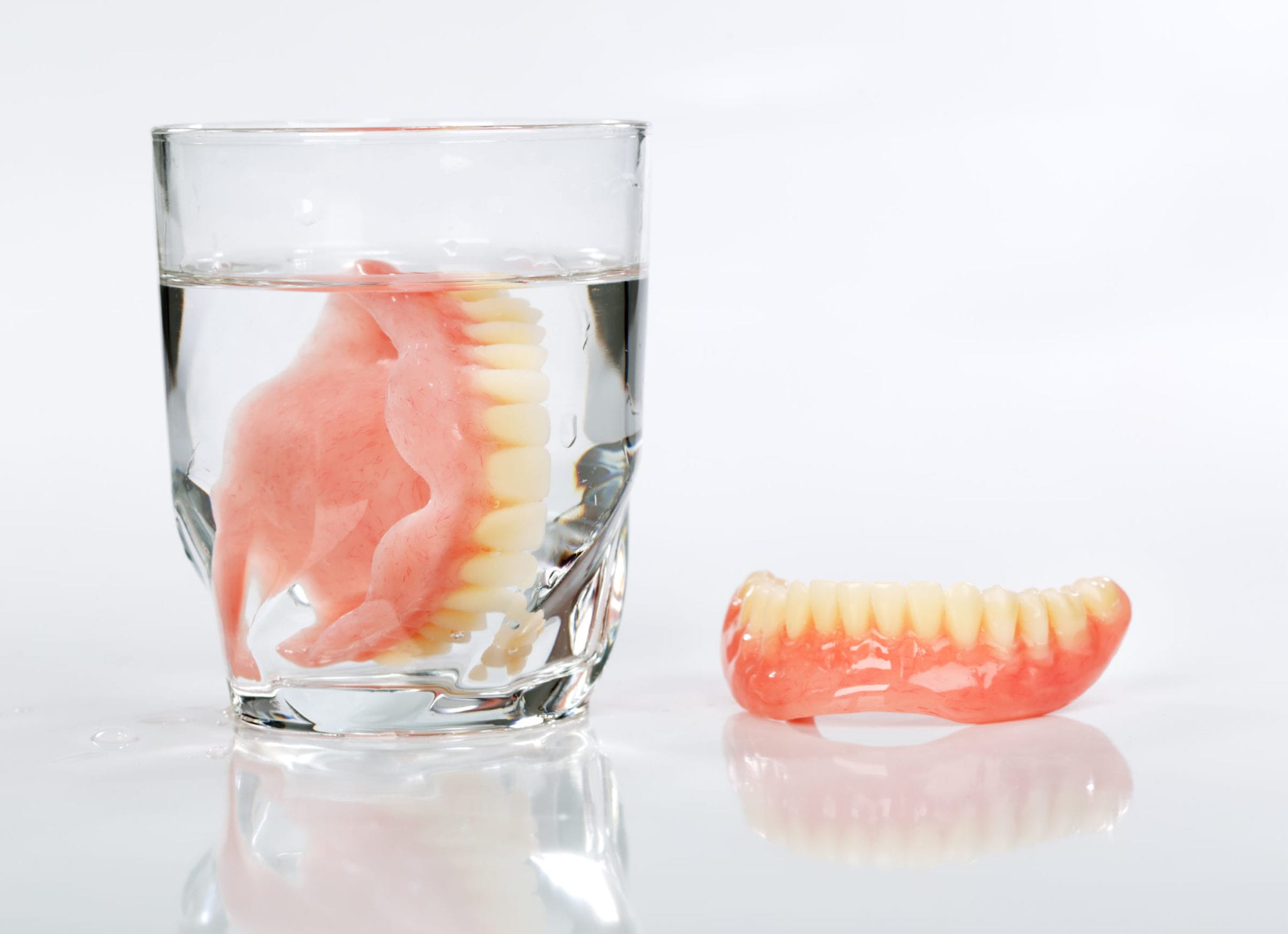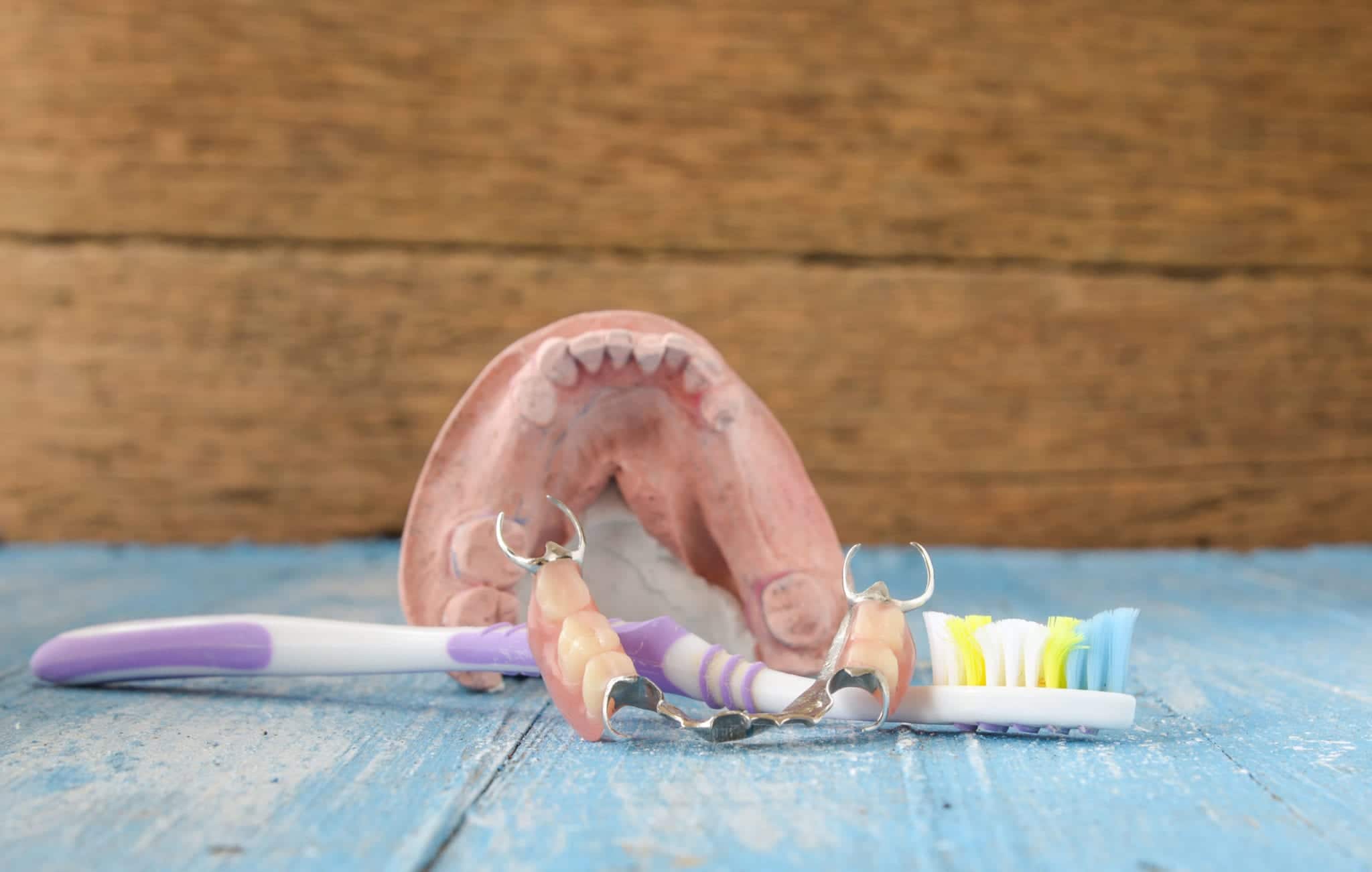
So you’ve just had some teeth replaced. Whether you have a new set of dentures or underwent a procedure to get dental implants, finally having new teeth can be a relief in many ways. Chewing is easier, your smile looks healthier, and there is less risk of getting a bad toothache.
However, do not expect to enjoy all of these benefits right away. You may need some time to get used to your new teeth. Depending on the option that you chose, you may experience initial sensitivity or need to ease your way into chewy or hard foods. Additionally, your new oral hygiene routine may look dramatically different.
Use the following guide to properly maintain your new teeth and keep your smile happy and healthy.
Your Guide to Proper Tooth Replacement Care

Dentures: Most likely, you’ve seen countless images of dentures floating in a cup. Since this is the only thing that most people see about keeping dentures clean, there is often an assumption that this is all you need to do.
However, just like regular teeth, dentures can get food stuck in them, and need to be brushed. You won’t be able to use traditional toothpaste, though. Toothpaste with bleach may negatively affect the color of dentures, and other toothpastes may be too abrasive.
Instead, you’ll need to buy a cleaner that is specifically designed for dentures, and make sure your toothbrush is okay for dentures as well. The harder the bristles, the more risk you have of damaging your dentures.
Dental Implants: For the most part, dental implant care is similar to the typical oral hygiene routine of someone with real teeth: brush, floss, and use mouthwash twice a day. Cleaning after meals is especially important.
If you have an electric toothbrush, you may continue to use it, but wait a few weeks. Soft bristled brushes are best for dental implants, and patients should be careful not to brush too harshly around the incision. Ask your dentist about special floss for dental implants as well.
Additionally, dental implants should also be x-rayed by your dentist at least once a year to make sure that the implant is in place and the gum around the area is healthy.
Crowns and Bridges: The most important part of maintaining crowns and bridges is making sure they are securely in your mouth. Even if you properly brush, floss, and rinse after meals, this form of tooth replacement may fall out, and if it does, the underlying tooth is at high risk for infection or decay.
If you notice that a crown feels loose, you should contact your dentist. If the crown falls out, save the crown and bring it to your dentist. Then clean the area with a cotton pad and remove any remaining debris or cement with a toothpick. Do not try and put the crown back in your mouth – just leave that to the dentist. The old crown may be refit, or a new crown may be made.
Want to Learn More About Tooth Replacement Procedures and Care?
The care required for specific types of tooth replacements may be the final decision making factor in which type of replacement you choose. Regardless of whether you pick dentures, implants, crowns, or bridges, though, you still need to take proper care of your new teeth, and even patients with a full mouth of dentures need to visit a dentist at least once a year to make sure the other areas of their mouth are healthy.
Need to make an appointment? Get in touch with an experienced South Florida dentist today.






